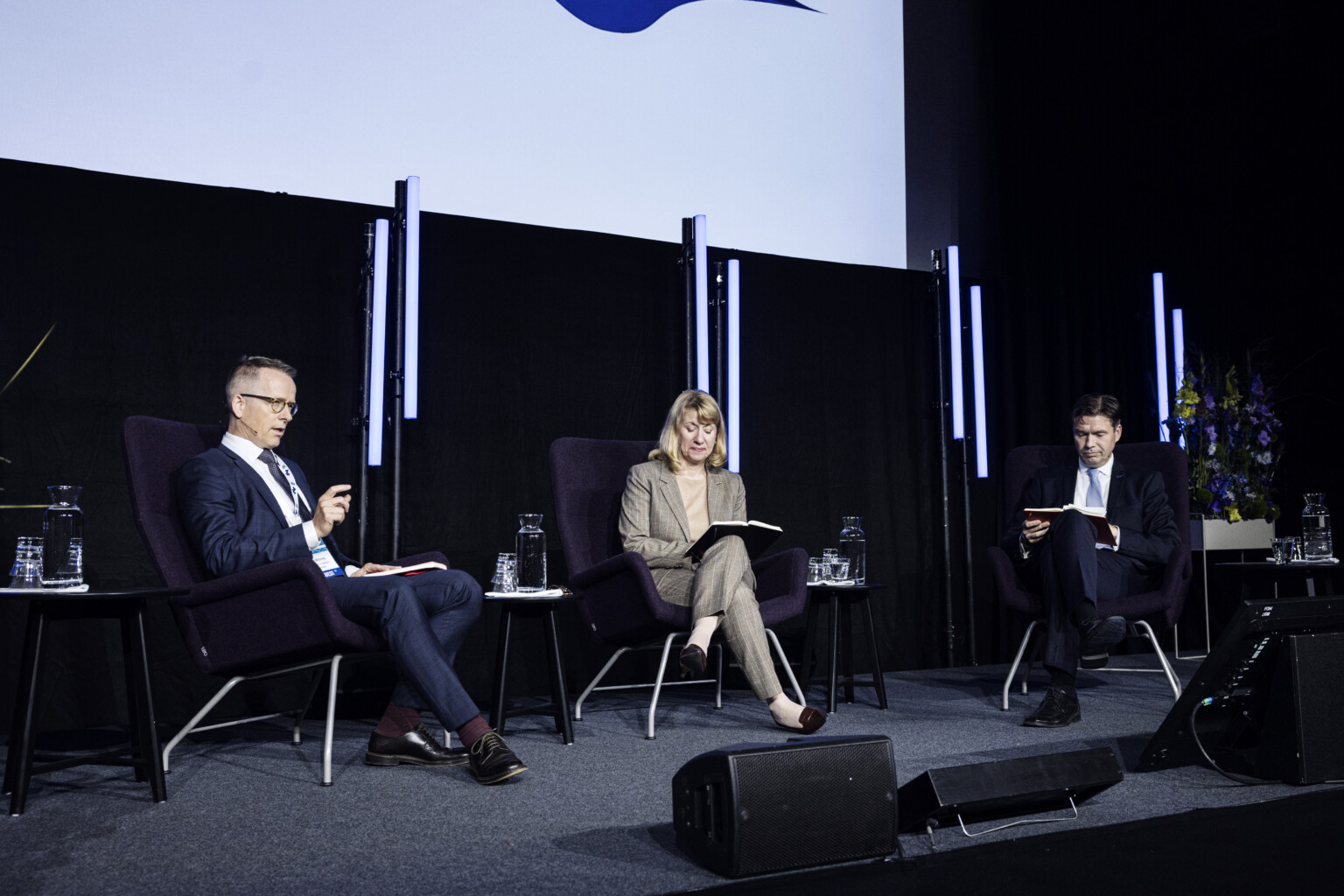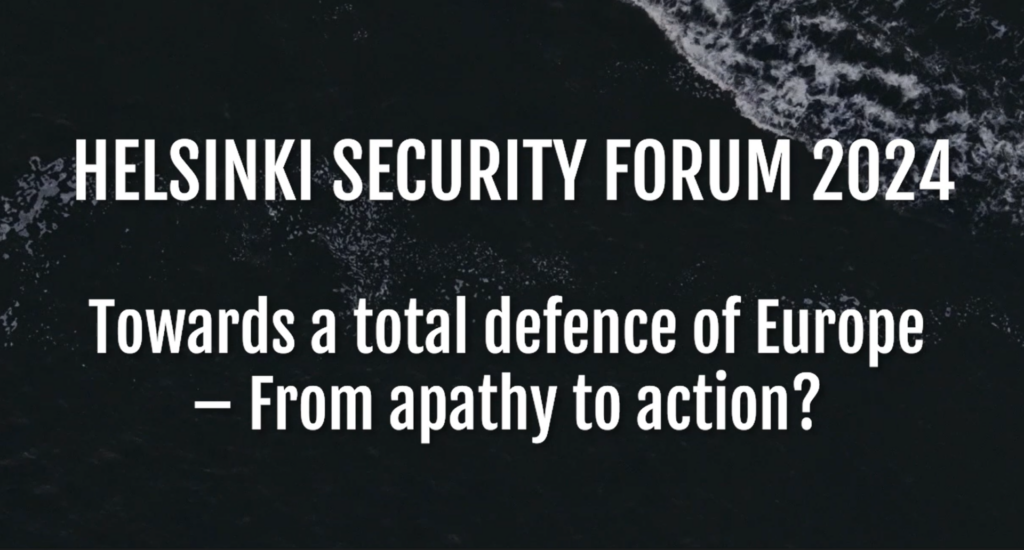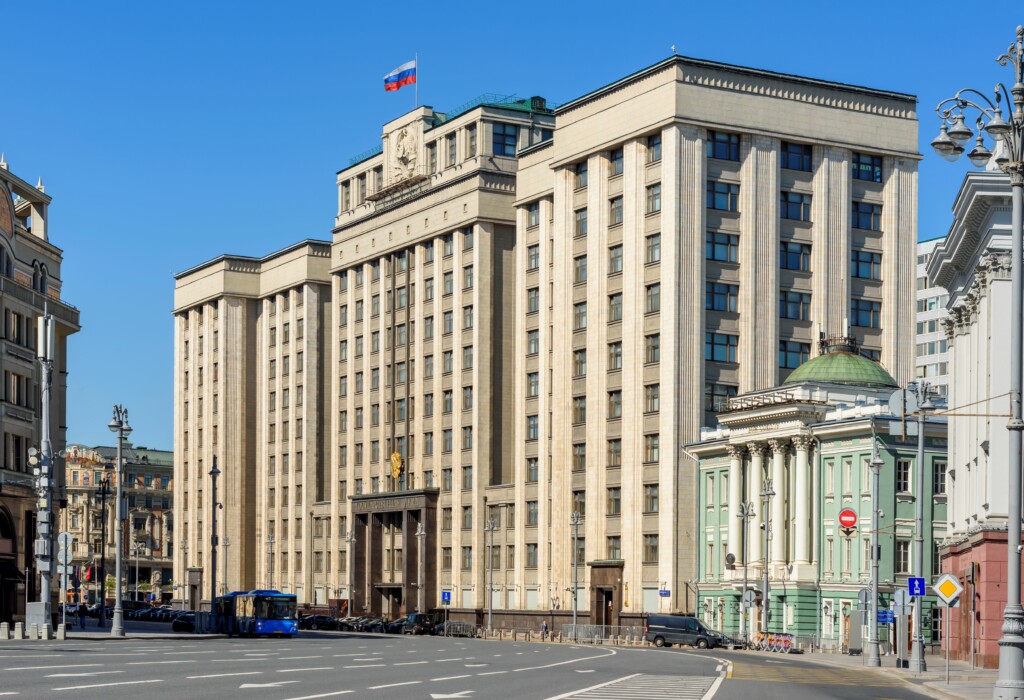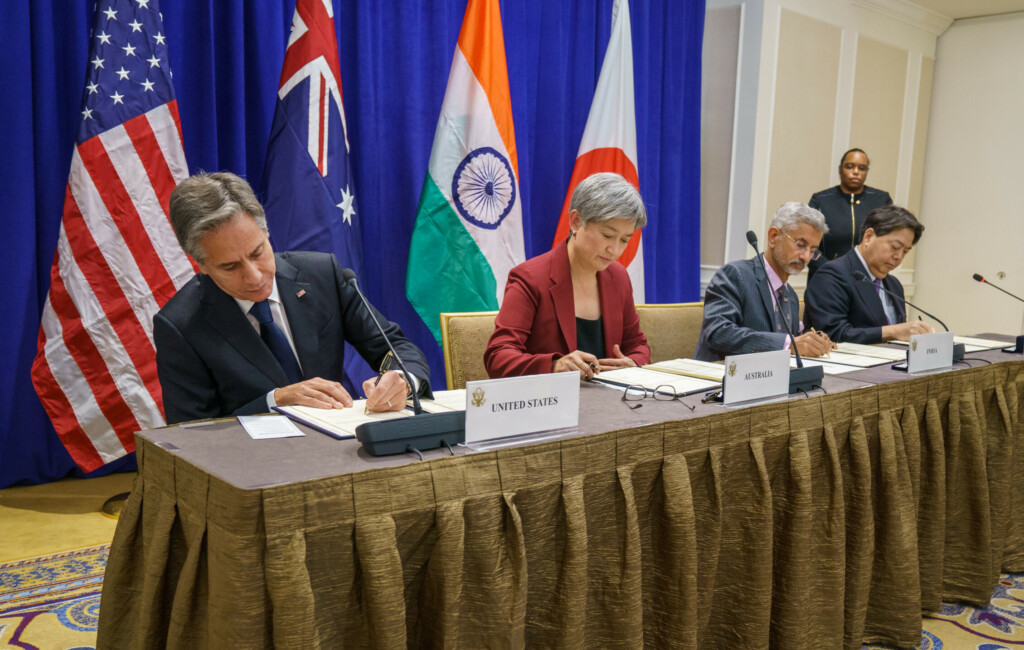Publications

Session I: Deter, Defend and Secure – Europe in the Era of Radical Uncertainty
How will Europe defend itself and its allies during this global era of radical uncertainty? In the first session of Helsinki Security Forum 2023, GMF President Heather Conley and Professor Sten Rynning discussed the future of NATO and how to defend and secure Europe.
Helsinki Security Forum 2023 started with the question that headlined the entire conference. The first session, Deter, Defend and Secure – Europe in the Era of Radical Uncertainty, brought on stage high-level experts of international security Heather Conley, President of German Marshall Fund and Sten Rynning, Director of the Danish Institute of Advanced Study and Professor of War Studies from the University of Southern Denmark. The discussion was moderated by FIIA Leading Researcher Charly Salonius-Pasternak.
“Our citizens’ willingness to defend our country is the highest in all of Europe. Our defence from now on is defence of the whole alliance.”
Minister of Defence of Finland Antti Häkkänen delivered the keynote speech to kick off session one. Häkkänen addressed Finland’s NATO membership and its contribution to the alliance’s defence. Finland’s focus is on collective defence, and participating in all efforts concerning collective defence is a priority to Finland, he underlined.
“We have a unique defence system here in Finland. Our citizens’ willingness to defend our country is the highest in all of Europe. Our defence from now on is defence of the whole alliance.”
Salonius-Pasternak started the session with a question on NATO’s ability to act as a deterrent and whether its readiness to do so had changed since the era of the Cold War.
Professor Rynning stated that he would, indeed, be a little worried about NATO and the Alliance’s current ability to make decisions.
Rynning pointed out that contrary to how things may appear at first glance, the NATO summits held ever more often between member states could signal an alarming trend. According to him, NATO’s planning horizon has shrunk to only cover the next annual Summit.
“It is a sign of weakness that we have to bring the chiefs togethers so often at such a high pace”, Rynning said.
Rynning noted that NATO leaders might have difficulty making decisions that may appear unflattering in their respective countries. This, according to the professor, has led to NATO’s increasingly marginalised role in the face of European security issues. Deterrence and defence are still on the Alliance’s list, but the difficult, continental questions are left for the informal formats, such as Quad and G7.
“Finland’s head is in NATO and its muscles are on national defence. The US is the opposite: NATO is in our muscles, like a reflex. But we have been losing it a little in our head.”
Heather Conley did not consider the organisation of multiple summits as quite as alarming – on the contrary, annual meetings among the Western leaders have helped to move things along.
Also, she disagreed with the assertion that NATO was not in the centre of European security policy. According to Conley, our focus should be on the fact that NATO is losing its grip on the new generation of US citizens.
“Finland’s head is in NATO and its muscles are on national defence. The US is the opposite: NATO is in our muscles, like a reflex. But we have been losing it a little in our head.”
Conley noted that maintaining NATO’s status and trustworthiness in the US would require better informing citizens.
“Defence and deterrence are means, not an end.”
Taking a step back to ponder what it is we are working to defend, Rynning noted that societies, governments and citizens are the foundation that NATO was created to secure.
“Defence and deterrence are means, not an end. And the end must be the European settlement that creates better conditions for our societies.”
Watch the whole discussion here and read more on the topics of HSF 2023 here.

Helsinki Security Forum 2024 addresses the need for European total defence
The third annual Helsinki Security Forum (HSF) will be held on 27–29 September 2024. This year’s conference is titled Towards...

for HSF Blog
Rejecting Russian Spheres of Influence
The EU has rejected the language of spheres of influence in favour of an international order based on common rules...

for HSF Blog
Reverberations in the Indo-Pacific of the War in Ukraine
Russia’s war of aggression against Ukraine has had significant ripple effects in Indo-Pacific security dynamics and ongoing great-power competition.